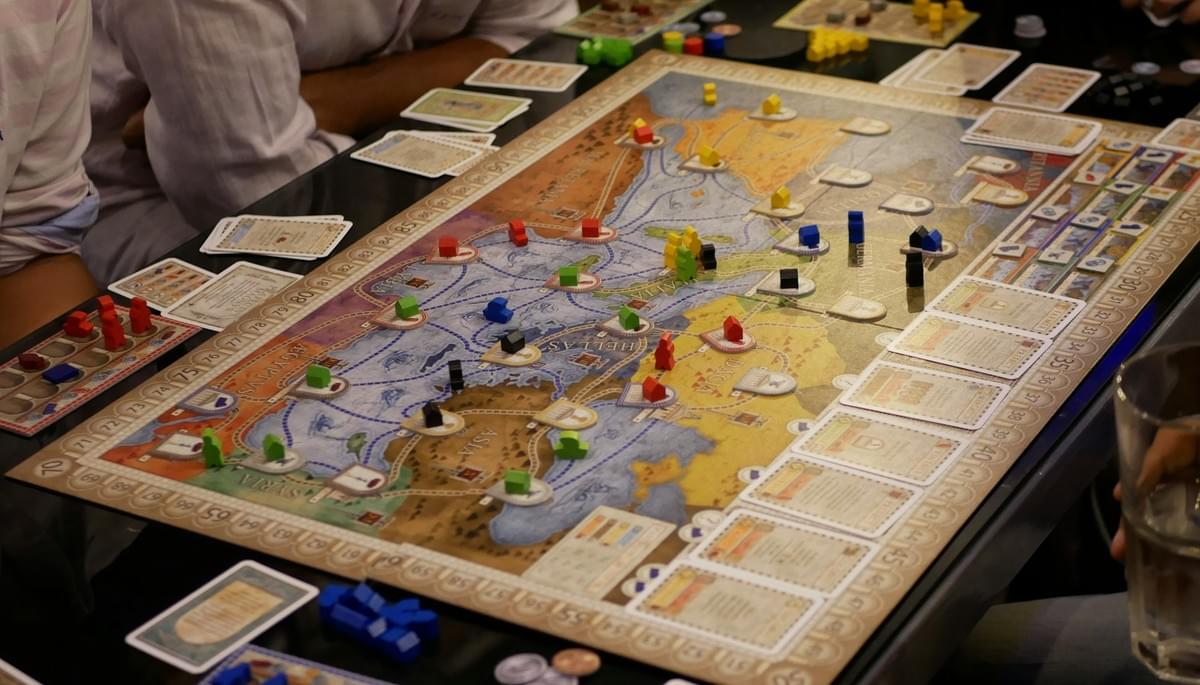You see the perfect game writing job posting. The role sounds amazing. The studio is making exactly the kind of game you want to work on. You're already mentally drafting your cover letter.
Then you see it: "Experience Required."
Ugh.
You scan the requirements again, hoping you missed something. Three to five years preferred. Shipped titles are a plus. Experience with AAA development pipelines.
You close the browser tab and go play a video game to blow off the frustration you're feeling.
If this sounds familiar, I have good news for you.
Here's what's happening: when studios say "experience required," they're not talking about what you think they're talking about. At the end of the day, they're not looking for a specific number of shipped titles or years at a particular type of company. They put those numbers into the job description as a filter, not as a wall.
They're looking for something that relates to specific job experience, but it's not exactly the same—and it's something you might already have, even if you've never worked in games.
After 20 years working on titles from BioShock to Hogwarts Legacy, I've seen talented writers get passed over because they misunderstood what studios want. And I've watched people with zero game industry experience get hired immediately because they understood the real requirement.
The problem? Studios can't explicitly tell you what they're looking for. So they use code words like "experience required" and hope you'll figure it out.
I will do my best here to help you figure it out.

The Translation No One Explains
When a job posting says "experience required," here's what's happening in the hiring manager's brain:
What they wrote: "Seeking writer with 3+ years experience in game development."
What they're thinking: "We need someone who can work within our chaotic, deadline-driven, constantly-changing environment without us having to explain how professional game development works."
Studios aren't trying to be gatekeepers (well, not intentionally). They're trying to avoid a very expensive mistake: hiring someone who can write beautifully but can't function within the bizarre realities of how games get made.
Here's the thing they can't put in job postings because it would sound insane:
"We need someone who can take creative feedback from eight different people with conflicting opinions, implement changes on a tight deadline, adapt when half the story gets cut two weeks before launch, collaborate with programmers who speak in technical constraints, and do all of this while maintaining quality and enthusiasm."
Instead, they write "experience required" and cross their fingers.
What Studios Say vs. What They Mean
They say: "Experience with AAA development pipelines preferred."
They mean: "Can you handle our messy, complex workflow without having a breakdown?"
They say: "Strong collaboration skills required."
They mean: "Will you survive the interpersonal dynamics that make work feel like a rollercoaster sometimes?"
They say: "Ability to work under tight deadlines."
They mean: "When everything goes sideways (and it will), can you adapt without making our lives harder?"
The real requirement isn't years in the industry. It's professional readiness for how the game industry operates.
The Two Types of Experience (And Which One Actually Matters)
Here's where most writers get confused. There are two completely different types of experience, and studios care way more about one than the other:
Creative Experience: Your writing samples, storytelling ability, character development skills, dialogue quality, and portfolio pieces.
Professional Experience: Your ability to work within systems, handle feedback and revisions, collaborate across departments, manage deadlines, and solve problems under pressure.
Most writers spend 90% of their time perfecting the creative experience and maybe 10% thinking about the professional side.
Studios spend 90% of their time worrying about the professional experience and assume you can already handle the creative part.
This mismatch is why you see job postings that seem to want both Shakespeare and a project manager rolled into one person.

Why Traditional Learning Paths Disappeared
Here's something that makes this whole situation even more frustrating: the way writers used to learn these professional skills no longer exists. Not the way it used to.
How Writers Used to Learn the Business
Twenty years ago, game studios were smaller. Senior writers had time to mentor junior people. You'd sit near someone who'd been doing this for years, and you'd pick up the unspoken rules by osmosis.
You'd learn things like:
- How to read between the lines of feedback from creative directors
- When to fight for your creative vision and when to let it go
- How to build relationships with designers and programmers
- What "we need to discuss this offline" actually means
- How to navigate the invisible hierarchy that determines creative decisions
This learning happened naturally. Senior writers taught workflow and professional skills alongside craft skills. You got the full picture.
What Happened to That System
Studio consolidation killed most of these mentorship opportunities.
Senior writers are now stretched across massive projects with no time for gradual skill transfer. Development cycles are faster and more intense. Remote work means less organic learning through observation. There's no bandwidth for teaching junior people how the business actually works.
This created a gap that nobody talks about: talented writers entering the industry with strong portfolios but no professional context.
The Gap This Created
Studios are frustrated by candidates who "can write but can't work." Writers are confused about why their excellent samples aren't getting them hired.
The unspoken expectation became: figure it out yourself.
But how are you supposed to figure out something that nobody explains?
This is why studios default to asking for "experience." It's a shortcut. They're hoping that if you've worked in games before, someone else already taught you how this stuff works.
The problem is, it creates a catch-22 for new writers: you need experience to get experience.

What Studios Are Screening For
Here's what hiring managers are trying to identify when they say "experience required":
They Want To See...Workflow Fluency Over Writing Samples
They want evidence that you understand how creative work gets done in a professional context.
Can you handle multiple rounds of revisions without taking it personally? Do you understand that feedback often comes from business constraints, not creative judgment? Can you work within technical limitations? Do you know how to manage your time when everything is due yesterday?
These aren't writing skills. They're professional skills that happen to involve writing.
They Want To See...The Collaboration Skills That Matter
Game development is intensely collaborative. Your story doesn't exist in isolation—it has to work with gameplay, art, audio, programming, and business requirements.
Studios want to know: Can you communicate effectively with people whose brains work very differently from yours? Can you translate creative ideas into practical implementation plans? Do you understand how your work affects other departments?
Most importantly: When conflicts arise (and they will), can you navigate them like a pro?
They Want To See...A Problem-Solving Mindset
This is the big one that most writers miss.
Studios don't want writers who see themselves as artists protecting their vision. They want writers who see themselves as problem-solvers using writing as one of their tools.
When a programmer says, "We can't implement that dialogue system," do you get defensive about your creative choices? Or do you say, "What can we implement? I'll see if I can find a different approach that works inside your system."
When marketing says the story needs to appeal to a broader audience, do you argue about artistic integrity? Or do you ask, "What specific concerns do you have? Tell me what you're looking for, and I'll see what I can do."
This isn't about compromising your creativity. It's about channeling your creativity toward solving the actual problems the team faces.

How to Show Them That You're Ready - Even Without Formal Industry Experience
Here's the good news: you can prove professional capability without having worked at a game studio. Let's walk through how.
Document Your Process, Not Just Your Output
Instead of just showing final writing samples, show how you work:
- Include examples of how you've incorporated feedback and revisions
- Document collaborative projects where you had to adapt to other people's requirements
- Show evidence of working under deadlines and scope constraints
- Demonstrate problem-solving: "Here's a creative challenge I faced and how I solved it"
This gives hiring managers insight into how you'd work on their team.
Translate Adjacent Experience
Professional skills transfer across industries. If you've worked in any collaborative creative environment, you probably have relevant experience. Here are some examples.
Editorial/Publishing: You understand revision cycles, deadline management, and working with feedback from multiple stakeholders. Changes don't make you cry (usually).
Marketing/Advertising: You know how to write under constraints, adapt tone for different audiences, and balance creative goals with business requirements. You will always be thinking about the player.
Theater/Film: You understand collaborative creative processes, working with directors and producers, and adapting to production limitations. You probably also know how to deal with crazy people.
Client Services: You know how to manage relationships, translate feedback into actionable changes, and deliver quality work under pressure. You can probably make a mean martini.
The key is framing these experiences in terms that game studios will recognize as relevant.
Strategic Portfolio Positioning
Lead with problem-solving evidence, not just creative samples.
Instead of: "Here's my best dialogue writing." Try: "Here's how I adapted this character's voice when we realized the original approach wouldn't work within our technical constraints."
Instead of: "This shows my worldbuilding skills." Try: "This shows how I developed lore that could be implemented across multiple game systems without creating narrative contradictions."
These approaches show how you think - not just as a writer, but as a game writer.

The Strategic Advantage of Understanding This Shift
Here's something important that a lot of writers don't realize: understanding what studios actually want gives you a massive competitive advantage.
While Others Chase the Wrong Thing
Most writers are still focused on perfecting their portfolios. They're polishing dialogue samples, creating elaborate character backstories, and building impressive creative projects.
None of this is bad, but it's not what's keeping them from getting hired.
Meanwhile, the writers who understand professional readiness are getting jobs with portfolios that demonstrate the skills studios need.
How This Changes Your Job Search Strategy
When you know what studios are looking for, everything changes:
Your applications focus on professional capability as well as creative talent.
Your networking conversations position you as someone who can solve problems, not just someone who can write.
Your interview preparation emphasizes collaboration stories and process examples, not just creative samples.
Your entire professional identity shifts from "aspiring writer" to "problem-solving professional who uses writing as a tool."
This isn't about becoming less creative. It's about demonstrating that your creativity can function within professional constraints—which is exactly what studios need.

The Real Question Worth Asking
Instead of asking "Do they like my writing?" start asking "What problem am I solving?"
Every game writing job exists because the studio has a problem:
- Players are confused about what to do next
- The story isn't supporting the gameplay effectively
- Characters feel flat and unmotivated
- Dialogue is slowing down the pacing
- Different story elements contradict each other
- The narrative doesn't align with the marketing message
When you present yourself as the solution to these problems rather than just someone who can write good stories, you become infinitely more attractive to hiring managers.
This shift affects everything. Your cover letters sound different. Your interviews focus on different topics. Your professional relationships develop around problem-solving collaboration rather than creative appreciation.
Most importantly, you develop the confidence that comes from understanding your real value to game development teams. They need you.
Build your writing chops, your game-writing expertise, and your creative community -- all at once
Join the waitlist for The Narrative Department's Game Writing Masterclass and get early access when enrollment opens in 2026. You'll learn what makes a great game writer now, how to break into the hidden job market, and get the structure and support that will help you make it happen.
Susan O'Connor is an award-winning game writer who has worked on projects from the original BioShock to Hogwarts Legacy. Her projects have sold over 30 million copies and generated over $500 million in sales. She founded The Narrative Department to help writers learn the ins and outs of writing for games - skills that everyone assumes you somehow already know.

